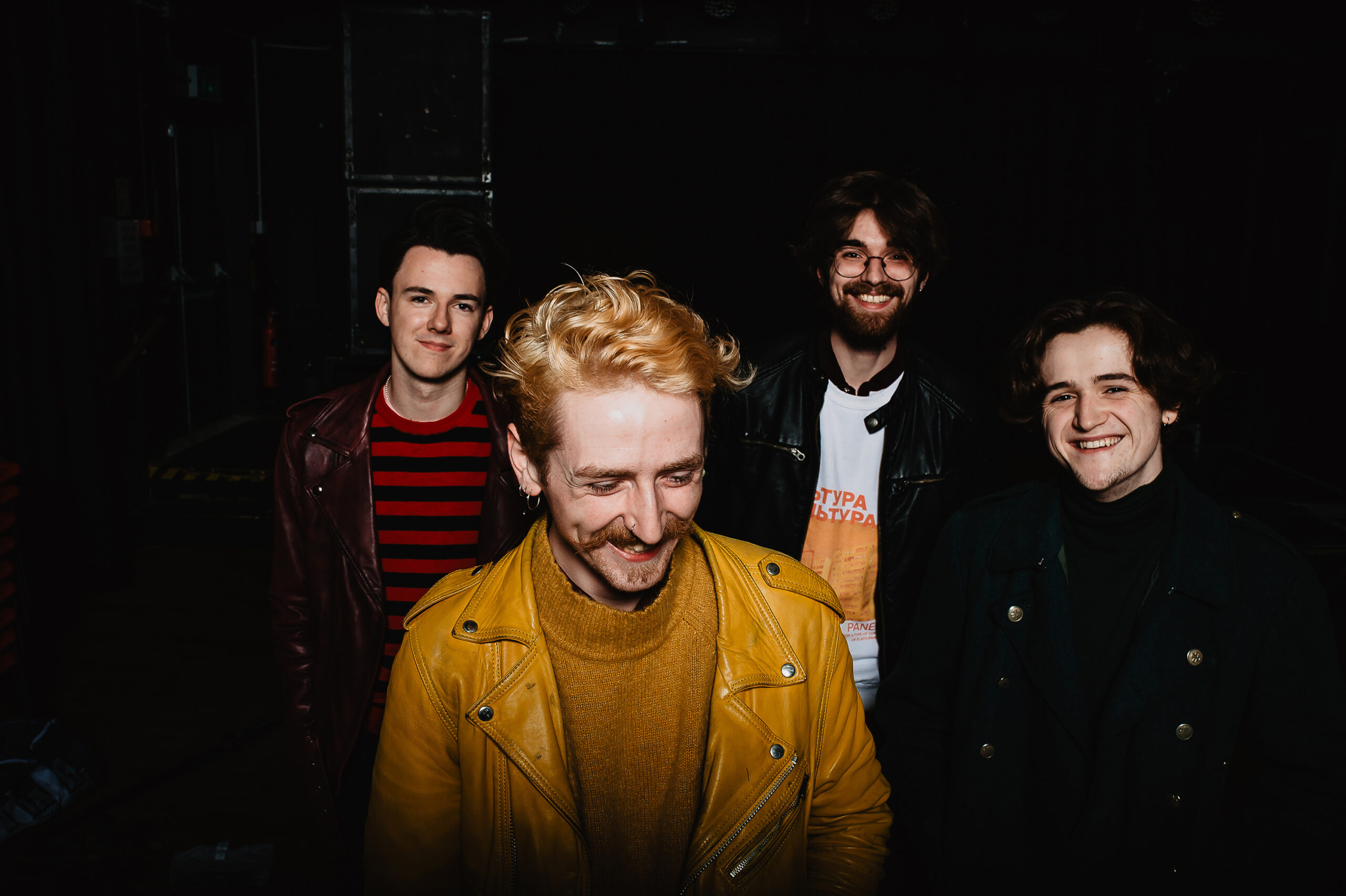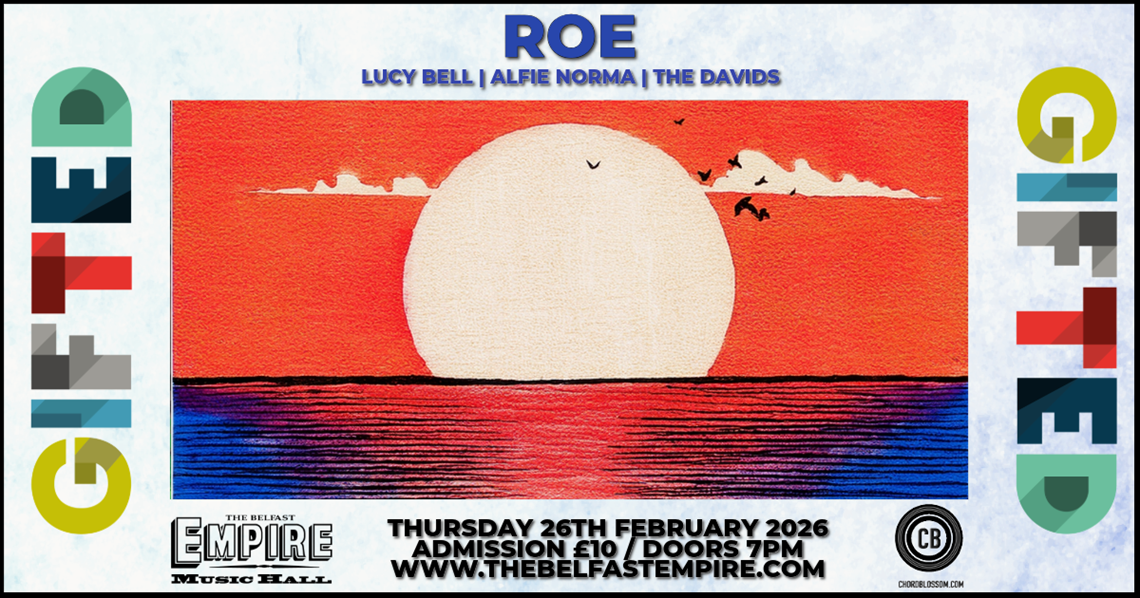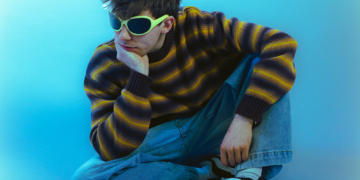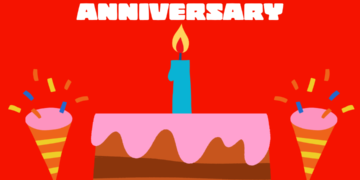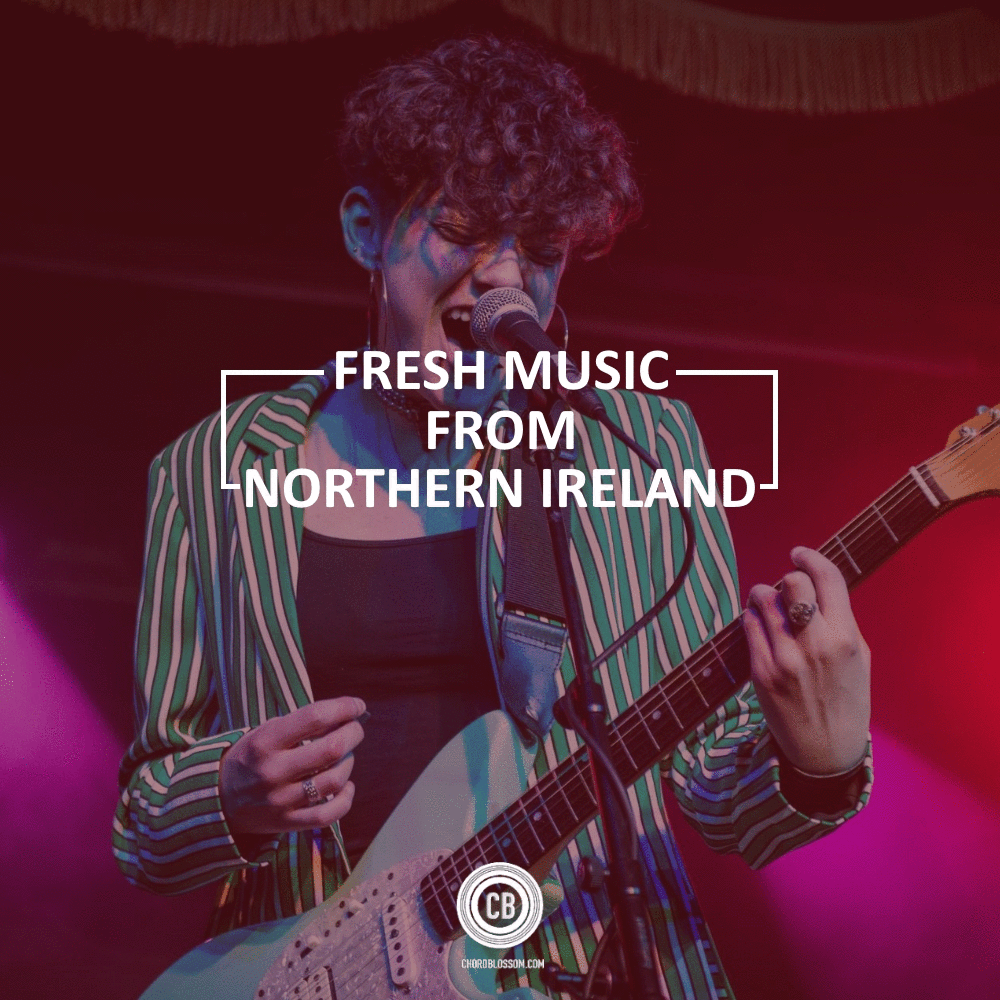Frequently imbued with a sense that anything can happen, Cloakroom Q have built up a chaotic live reputation that can shoot off in any direction. A scattered selection of singles and an EP has led to a debut album that looks to capture that live energy. Yes, Again, despite it’s one hour run time, is an exploratory but surprisingly focussed record, combining notes of indie and art rock with various other colours thrown in for good measure. Recorded at Half Bap studios, it incorporates improvised riffs and rising soundscapes, and songwriting subjects that range from dreamy mornings and jetpacks to disconnection and foot cramp induced orgasm.
We asked the band to unpack the album’s twelve tracks below, touching on song’s origins, subject matter and the musical ideas embedded in each.
Leave Me at Lusk
The first track on the album because it was the first song we wrote for the album. It’s also the track we’ve played the most live and the tune most people probably know us for. The idea for it based on a story Dan told us about driving past the exit for Lusk on the motorway and thinking “that sounds good” although the chorus has nothing to do with the verses which were written by Ryan.
Tabula Rasa
The vocal bit at the start of the track was just something we did over and over again because it was something catchy, then the idea came to intertwine it with the 5 note riff of ‘Lusk’. Then Ryan wrote the chords to turn it into a real track. Also the idea for the name Tabula Rasa (Blank Slate) was just that there was ‘Lusk’ and then this track serves as the jumping off point for the rest of the album.
Zhia
It was the first bass riff Danny presented to the band and we kind of jammed over it and recorded it. Then while we were all sitting around he said “here’s these lyrics I’ve just written” and the name ‘Zhia’ just kind of stuck. It’s also a nightmare to play live because we always play it way faster.
Here Everything is Still Floating
The intro was the first thing made for this song; the first time we went to Donegal to write, Conall and Danny sat and jammed out the opening part pretty much exactly how it sounds on the album. It was early in the morning on the first day, which plays into the lyrical content of the idea of that really early-morning ethereal feeling before sunrise fully kicks in, like with the lyric “it feels like I’ve awoken before god”. It’s one of the more directly emotional songs on the album, dealing with the loss of someone dear to you, so we subverted that directness with very surreal lyrical elements such as a literal conversation with the sky, whose wisdom provides comfort and guidance (shout-out to the Big Sky, cheers for the wise words mate). This idea was cemented further by titling the song after a piece by surrealist painter Max Ernst, which Ryan had found in an art book.
Lyserg
When recording with George Sloan at Half Bap, as the second day was coming towards a close, we asked George to just hit record and let us improvise for a while, we made 3 jams, one where we switched up instruments, one where we all played the drum kit and then there was the jam that ended up being used for Lyserg, we where all so happy with how it came out that we thought it would be good to have it on there in its entirety, even though we originally had the idea of having the track be a sound collage of various recordings we had gathered over the last few years. One of the recordings that was considered as part of that hypothetical collage was an improvised jam from Ryan and Conall in early 2018 on the first Donegal trip. A few guitar motifs from that recording were used on the track, even though the recording itself wasn’t used.
Capra Takes Off!/Capra Comes Down (Hand Me My Jetpack I & II)
We had written this energetic, tension building, 2-minute track after our original synth player left, so it’s got a far more raw sound than the work we’d done previously. The build-up had this rising feeling of ascension to it, so that got us thinking lyrically about the idea of jetpacks. So looking into it, we discovered the work of Romanian engineer Justin Capra, who in the 1950s had invented the most recognisable version of the jetpack, which was functional, but for only very short periods of time. This was spurred on by the ambition to literally escape Soviet enslavement. So there’s a few direct quotes from him in there, but we took the idea further by using it as a metaphor for the dangers of unfounded narcissism–the narrator has succeeded in his invention, and is rising above the clouds to take on God Himself. However, like with Capra, the design is inherently flawed and he comes crashing down in part 2–there is no escaping the regime this omniscient deity has trapped us in, and the narrator has been punished for his crimes.
Nowhere To Spit
This was the first song Ryan presented as a fully-structured track, obviously brimming with Pavement’s influence with the use of off-kilter chords and sardonic word-choices. Its theme is an attempt to see the bright side in poverty–in that when you’re down at the bottom your ambitions will never be higher, and no matter how far up you rise, you’ll always be thirsting for more. It was a bit of a gamble to choose it as lead single because the chorus is nowhere to be found. However, we felt it best represented the departure from singalong tunes like ‘Lusk’ and ‘People With Energy’. It’s an indicator of our maturation as songwriters because it’s not concerned with completely losing your mind performing it onstage. Also, the keys and horns give it a rather inviting sonic landscape and make up for the lack of a singalong chorus.
KFHC
Ryan’s twin Jack came up with the title after hearing a demo of the song in its early stages. Dan had come up with a bunch of loosely connected riffs and we all worked through it together to figure it out structurally. Lyrically the song is meant to be about not being able to connect with people you once felt close to but also the idea is that to be “Kentucky Fried” comes from pulling a foot cramp when you’re having sex, causing you to climax and that combo being excruciating to experience, which is why it’s all made to sound quite gross and horrifying, but whilst still remaining overtly sexual, it’s very much meant to be a tongue in cheek joke song.
Soporific
The title means to induce sleepiness and we think this comes across in the majority of the song. With the harsh guitar flourishes and the looping drum-beat holding it together, it gives off a kind of hypnotic feel. That could also come from the fact we had no structure for the song until we went in to record it and the whole outro kind of just came in the moment with some experimentation by Dan, Jared and Ryan to make the outro feel like a huge lift. Because of that it feels like a song we’d struggle to play live, at least not without 3 bass players.
The Door
Dan had originally written ‘The Door’ as part of a song writing module in University, everyone in the class had been given the same title for a song and told to work away pretty much. The song went through a lot of reworkings as a band to get it to work together; there was a bit too long of a time in which Dan was insisting that Danny should be playing blast beats.
Barely A Shadow
This is a song that had been brewing inside for a long time. During a lecture in art school, the phrase was used to describe a piece of art in which the artist had very lightly touched the paper, not leaning down on the pencil at all. But the phrase resonated with Ryan and spurred on the theme of the song, that of frailty in transitional periods of life. In the first verse it’s got a negative connotation, in that you’re so far in the depths of depression that you feel yourself literally fading away; conversely, in the second verse, it’s a very positive sentiment- standing in the light of the people you love, a light so radiant that it blows away the darkness surrounding you. So, the first part of the song is a solo acoustic performance based around a very simple chord structure to exemplify the loneliness depicted in the lyrics. Separately, Dan had written this incredible warm bass riff for a university project- but when we heard it we just had to use it, and it ended up being the perfect basis for the coda of the song. It juxtaposes the sparse, lonely first half: the whole band enters and creates this triumphant atmosphere to encapsulate the purest joy felt in friendship and togetherness.

